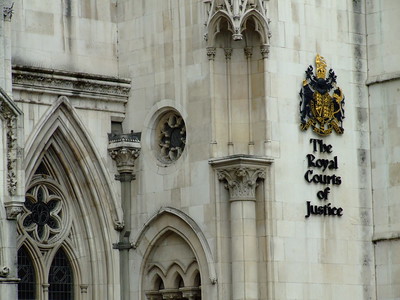
It is commonly thought that a magistrates’ court does not have the power to resolve all issues that might lead to abuse of process being argued.
In the recent case of Mansfield v Director of Public Prosecutions [2021] EWHC 2938 (Admin), the facts were as follows:
The appellant challenged a decision refusing an application to stay proceedings and sought an order quashing a conviction for possession of a bladed article.
The appellant admitted possessing a lock knife and a small amount of cannabis and the evidential review officer gave authority to proceed by way of simple caution. The admissions were made after the appellant was told the sergeant had authorised this disposal if admissions were made.
The custody sergeant asked to administer the cautions challenged the decision and the decision was made to charge him. The suggested reason for the change of heart was said to be that the officer had looked at the wrong document for the gravity matrix.
At the magistrates’ court, the defence argued there was jurisdiction to determine whether the proceedings should be stayed as an abuse of process, by reason of the clear indication a caution would be administered.
The prosecution argued the issue of abuse was a matter for the High Court alone to determine.
The Court determined the district judge was wrong to find the magistrates did not have the jurisdiction to determine this type of abuse of process application.
It went on to find there was an abuse of process, stayed the proceedings and quashed the conviction.
Legal Framework
It was common ground that there are essentially two categories of case where a stay is warranted on grounds of abuse of process: the first (category 1) where it is impossible for the defendant to receive a fair trial; the second (category 2) where all the circumstances taken together offend the court’s sense of propriety and justice. Counsel were agreed that the present case falls within category 2.
Counsel for Mansfield contended that the analysis undertaken by Maurice Kay LJ in Nembhard v DPP [2009] EWHC 194 (Admin) took a wrong turn and that the error was thereafter repeated in Woolls v North Somerset Council [2016] EWHC 1410 (Admin). She argued that the court had in each case mistakenly understood previous authority as supporting a wholesale exclusion of category 2 cases from the magistrates’ jurisdiction when in fact the authorities relied upon did not do so.
She submitted that the House of Lords decision in Bennett and a subsequent line of Divisional Court authority, together with obiter dicta from the Privy Council’s decision in Panday v Virgil [2008] UKPC 24, [2008] 1 AC 1386, make it plain that it is only one very narrow aspect of category 2 cases that is excluded from the jurisdiction of the magistrates’ court.
The prosecution recognised that the issue as to whether the magistrates’ court has jurisdiction to stay proceedings on the ground of the second category of abuse has been the subject of conflicting authority and judicial comment. He also acknowledged – correctly in the view of the High Court – that the cases relied upon by the courts in Nembhard and Woolls did not provide support for their conclusion that the Magistrates Court has no jurisdiction over category 2 cases.
The High Court held that:
‘…the class of abuse case falling to be decided exclusively in the High Court would seem to be very narrow indeed, perhaps comprising only executive misconduct in relation to extradition, as occurred in Bennett itself. I would decline to attempt any more precise definition of the exception. What appears clear from the above review of the authorities, however, is that magistrates will be competent to investigate and determine a wide range of circumstances falling into category 2 arising from, and bearing upon the fairness of, the domestic criminal process.’
Implications
This is an extremely important judgment that will enable more challenges to be taken at the magistrates’ court, therefore avoiding the lengthy, expensive and complex challenges previously pursued via judicial review.
Contact Broadbents Solicitors
We ensure we keep up to date with any changes in legislation and case law so that we are always best placed to advise you properly. If you would like to discuss any aspect of your case, please contact our expert team here at Broadbents Solicitors.
We cover various fields of law, ensuring that you have access to expert legal advice. You can call our dedicated team today: Alfreton 01773 832 511, Derby 01332 369 090, Heanor 01773 769 891, or Sutton-in-Ashfield 01623 441 123. Alternatively, you can head over to our online enquiry form and we’ll be in touch.
[Image credit: “The Royal Courts of Justice” by R/DV/RS is licensed under CC BY 2.0]






